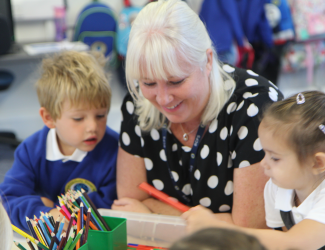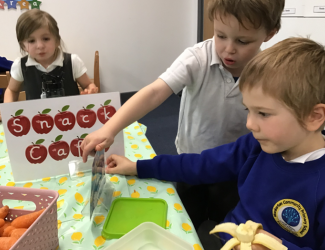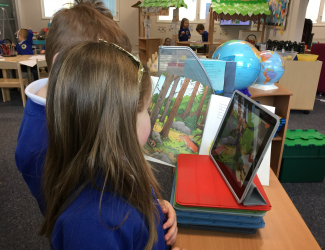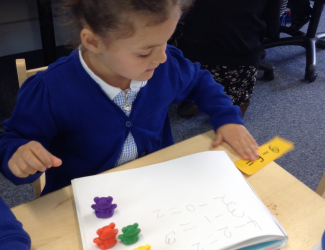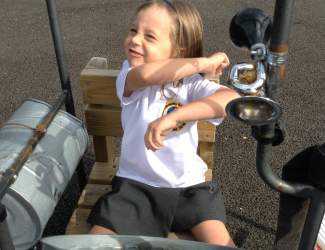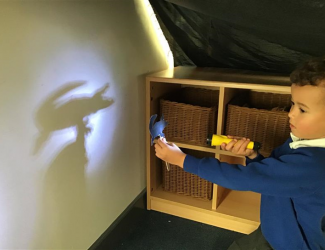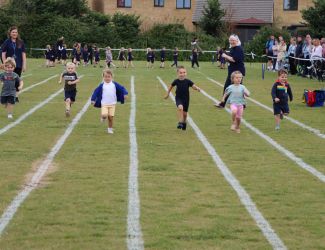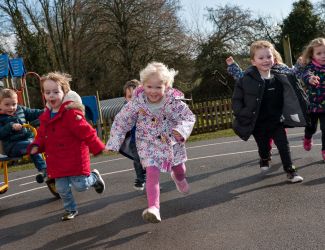Reception Personal, Social and Emotional DevelopmentCurriculum
Children will be taught...
EYFS Development Matters Statements Three and Four Year Olds
- Select and use activities and resources, with help when needed. This helps them to achieve a goal they have chosen, or one which is suggested to them.
- Develop their sense of responsibility and membership of a community.
- Become more outgoing with unfamiliar people, in the safe context of their setting.
- Show more confidence in new social situations.
- Play with one or more other children, extending and elaborating play ideas.
- Find solutions to conflicts and rivalries. For example, accepting that not everyone can be Spider-Man in the game, and suggesting other ideas.
- Increasingly follow rules, understanding why they are important.
- Remember rules without needing an adult to remind them.
- Develop appropriate ways of being assertive.
- Talk with others to solve conflicts.
- Talk about their feelings using words like ‘happy’, ‘sad’, ‘angry’ or ‘worried’.
- Understand gradually how others might be feeling.
- Be increasingly independent in meeting their own care needs, e.g. brushing teeth, using the toilet, washing and drying their hands thoroughly.
- Make healthy choices about food, drink, activity and toothbrushing.
EYFS Development Matters Statements Children in Reception
- See themselves as a valuable individual.
- Build constructive and respectful relationships.
- Express their feelings and consider the feelings of others.
- Show resilience and perseverance in the face of challenge.
- Identify and moderate their own feelings socially and emotionally.
- Think about the perspectives of others.
- Manage their own needs.
- Personal Hygiene
- Know and talk about the different factors that support their overall health and wellbeing:
- Regular Physical Activity
- Healthy Eating
- Toothbrushing
- Sensible amounts of ‘screen time’
- Having a good sleep routine
- Being a safe pedestrian
Early Learning Goals
Self-Regulation
- Show an understanding of their own feelings and those of others, and begin to regulate their behaviour accordingly.
- Set and work towards simple goals, being able to wait for what they want and control their immediate impulses when appropriate.
- Give focused attention to what the teacher says, responding appropriately even when engaged in activity, and show an ability to follow instructions involving several ideas or actions.
Managing Self
- Be confident to try new activities and show independence, resilience and perseverance in the face of challenge.
- Explain the reasons for rules, know right from wrong and try to behave accordingly.
- Manage their own basic hygiene and personal needs, including dressing, going to the toilet and understanding the importance of healthy food choices.
Building Relationships
- Work and play cooperatively and take turns with others.
- Form positive attachments to adults and friendships with peers.
- Show sensitivity to their own and to others’ needs.

